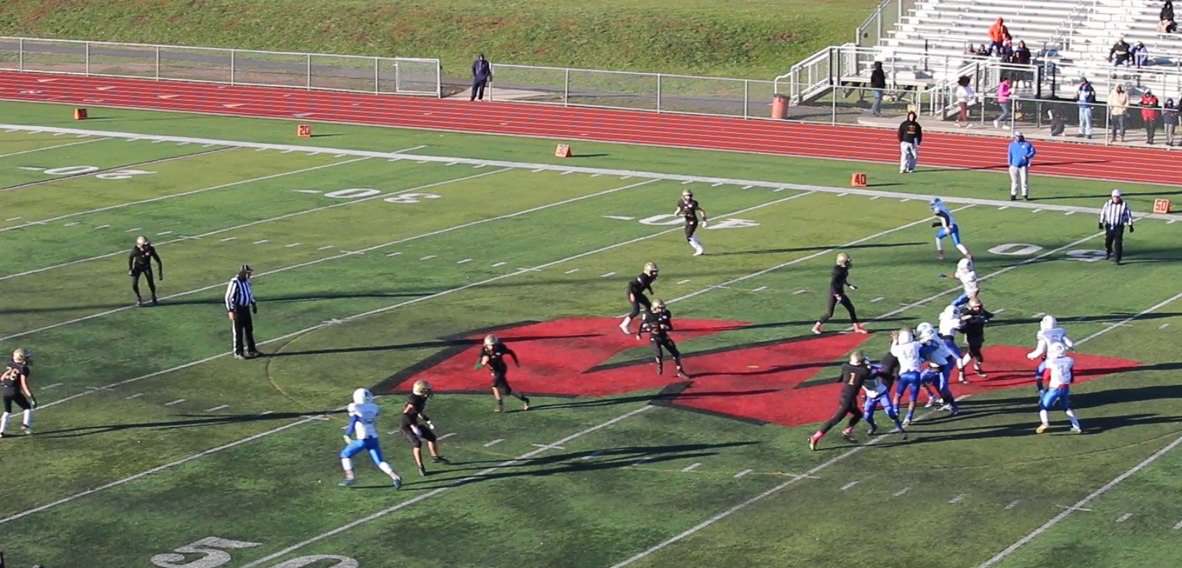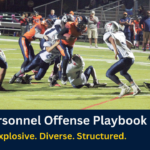Linebacker Zone Drop Drill | Linebacker Pass Coverage

One of the toughest things to do in football is to effectively teach linebackers how to drop back and cover the pass. Linebackers are in their position because they tend to be downhill run stopping players. But, when the offense is going to pass the ball, it’s important they can cover receivers efficiently and take away the short passing game in the middle of the field. There are multiple ways to teach these players to cover the field but we prefer using a pattern match technique to give our defenders a better chance to make a play. Here is a linebacker zone drop drill that you can do.
Linebacker Zone Drop Drill
In traditional defensive coverages the linebackers are told they are responsible for shutting down the middle of the field. In this scenario, the players would drop back to their spot and look for the first person to come into their zone. Once this player enters their zone they would cover him until he left their zone. The problem with the majority of linebackers they would drop into their zone and be looking everywhere to find a receiver. By the time they located the receiver he would be coming across the field at full speed and the linebacker never stood a chance to cover him.
Related Content: Linebacker Drills for Youth Football
The solution for the problem of teaching linebackers to cover the middle of the field is to adapt a Pattern Match technique that has become popular across all levels of football. This technique is based around the concept that the defenders will be playing man to man coverage on the route unless the receiver breaks away from them. The effect is that the linebacker has a much cleaner set of rules that they need to master. This allows them to actively find the receiver they are responsible for and shut them down.
Linebackers first responsibility is to defend the run, as a result they must first ensure that the offense is going to be throwing the ball before they break out to defend the pass. Once they do determine that the offense will be passing, they need to immediately snap their eyes to the most inside receiver on their side of the ball while they gain depth and width. The mistake many linebackers will make is that they will look for the receiver before starting to gain depth. This will put the linebacker a step behind a player who is already faster than him.
Once the linebacker has started gaining depth and has his eyes on the most inside receiver he will assume that the receiver is going to go vertical. This would be the most dangerous route so we always prepare for the worst case scenario to make sure we are safe against it. If the receiver goes vertical the linebacker will track his inside hip and look to make the throw more difficult and possibly make a play on the ball. If the ball is thrown to the receiver as long as the linebacker is chasing from the inside hip and there is a Safety over the top the Quarterback has to make a great throw and the receiver has to make a catch in traffic.
The Pattern Matching concept versus a vertical is pretty much man, it’s only when the most inside receiver starts making breaks that the coverage looks a little different. If the receiver makes a cut going to the outside, the linebacker needs to look for any threat coming back inside. He will never be able to keep up with the receiver to the outside so he is better served looking for a threat coming back inside or a route coming from the opposite side. If the receiver makes a cut in, the linebacker will continue to defend him and carry him across the the formation. This is a little bit different than traditional coverages that pass receivers off when they go across multiple zones. When these receivers get passed off is when they normally become uncovered. To combat this we will just keep our defender on the receiver.
When coaching linebackers in pass coverage it’s important to give them a clear set of rules that they can master. By using the Pattern Matching techniques the linebackers can significantly cut down their learning time and focus on refining their skills, not only in pass coverage, but in defending the run as well.
(See Also) Guide for Coaching Linebackers











